Sprinter Calvin Kang Li Loong, 25, fell ill the week before the 77th Singapore Open 2015 – which took place in early April this year. The meet had been his last chance to qualify for the 2015 SEA Games. And in fact, a mere two days before he was due to run his 100m race, he was still recovering. Said Kang, a Sports Science Management student at the Nanyang Technological University “I was resting a lot and was unable to proceed with my usual pre-competition workouts.”
So he wasn’t confident about his qualifying chances for the 2015 SEA Games. Said the national runner, “Though I did not feel confident, I knew that no matter what I felt like, the race would still go on. So I went ahead, and gave it my best.”
His best was good enough to qualify
And his best had been good enough to qualify Kang for the 100m sprint event, at the 2015 SEA Games. Said the sprinter, “I thank God that my best performance had been good enough on that day. I am very thankful to have qualified for the 100m – at the last competition slated for the SEA games qualifying entry.” He had run 10.52 seconds in his 100m heats, followed by a personal best effort of 10.48 seconds in the semi-finals. He had eventually finished the Singapore Open in third place, with a timing of 10.56 seconds.
False start system may have worked to his advantage at the Singapore Open 2015
At the same time though, Kang also felt that the false start system used at the Singapore Open 2015 – which had initially led to the disqualification of some athletes, including three Singaporean sprinters – may have worked to his advantage in the end. Explained Kang, “The day before, when I had tested the system, I false started two out of two times. So I told myself not to react as quickly on race day, lest I might eventually false start too.”
“So I kind of held back a little at the start – even though my starts are my strength. That probably gave me the energy to push through to the end – to qualify for the SEA Games. The ending is usually my weakest part of the race. But I guess everything fell into place,” Kang added.
Training hard with the gold medal in mind
Now that he has successfully qualified, Kang, who will be taking part in the 100m sprint and the 4x100m relay events, has been training hard for the SEA Games. He will be under a new Portuguese coach, Luis Cunha – who had been appointed to train Kang and his fellow sprinters since December. He said, “Training has been good. I am now completing workouts that I did not manage to complete in the past, with my new coach. We are also working on my sprint technique. I have been focusing a lot on my foot placement, hip height and strike rate.”
“A typical week in training would comprise of speed and speed endurance workouts. I also do strength training. This helps to strengthen my muscles, which are important for sprinters. In the past, my workouts were slightly different and I am still adapting to the new style of training,” Kang explained.
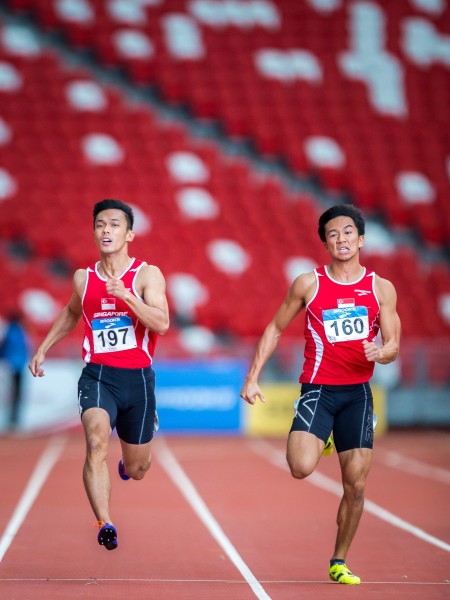
Kang (right) and fellow Singaporean athlete Lee Cheng Wei at the 77th Singapore Open Track & Field Championships in 2015. (Credit: Bp Chua)
Hopes to finally bag the gold in the 4x100m relay
But by employing these new training techniques, Kang is hoping that he and his team mates can finally bag the gold medal in the 4x100m relay. This is because for the past three consecutive editions of the SEA Games, the Singaporean 4x100m relay team has always finished second – without fail.
Added Kang, “We have always come so close to winning the gold medal. We lost out by 0.004 seconds in 2011 and 0.04 seconds in 2014. Getting the gold is definitely the goal this time round!”
Plenty of fast 100m sprinters in the region
But for the individual 100m sprint event, Kang sees it as a challenge, in terms of bringing home the gold medal. This is because he will have to compete against many other fast and rapidly improving sprinters in the region.
They include Thai sprinter Jirapong Meenapra, who has recently been clocking record-breaking times – such as a Games record of 10.38 seconds at the 43rd National Games in Thailand in December 2014, as well as winning the 100m gold medal at the 2013 SEA Games in Myanmar – in 10.48 seconds. Other leading regional sprinters also include Iswandi Iswandi from Indonesia as well as Malaysia’s Mohd Izzuddin Yahya.
Explained Kang, whose personal best is 10.48 seconds, “For this year’s SEA Games, the winning time will be very fast. So for me to be on the podium, I’ll have to work really hard and to keep my cool and focus on the 100m run. In a sprint race, it is anybody’s race. The race is won after crossing the finishing line, but many sprinters ‘finish’ the race before the tape. It will be a challenge for me but I am going to work towards that – bettering my personal best will be the first step.”
Home advantage in terms of support from friends and family, will help
But home advantage, he feels, will help to some extent. Said Kang, “Home advantage lies not in the stadium or the climate that we’re used to training, but here we have our family, friends and fans who will be supporting us all the way.
“For me, I feel personally, that with this support, it will increase our motivation and our push to get to the finishing line. This is where we grew up – and where we will be giving our best, in front of all Singaporeans,” added Kang.
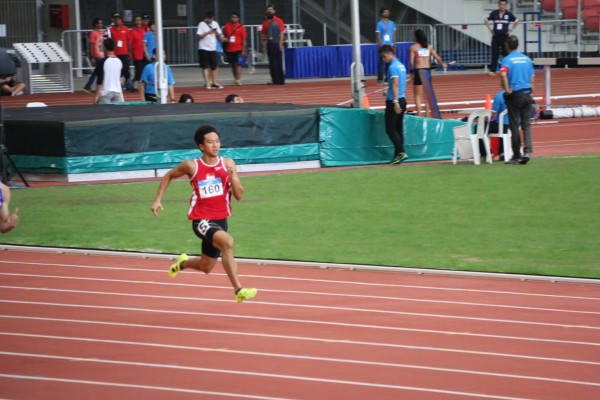
Kang sprinting away at the 77th Singapore Open Track & Field Championships in 2015. (Credit: Nicholas Fang)
First fell in love with sprinting at age nine
Kang’s love for sprinting competitively had started when he was nine years old. Said Kang, “I have always loved speed. I love feeling the breeze brushing past my face, and the feeling of being out there running. The atmosphere of competition resides well with my being too.”
He decided to specialise in the 100m event in particular, because this is the shortest distance in outdoor track and field meets. Said Kang, “I chose the 100m because I liked the training. I have tried 400m training and it is really tough – so kudos to those speed endurance sprinters.” But, he also added that he takes part sometimes in the 60m event – which is held in indoor track and field meets.
Competing on a national level comes with its sacrifices
But becoming a national athlete does not come without its sacrifices. For Kang, his biggest sacrifice was the lack of time that he is able to spend with his loved ones. Said Kang, “Devoting so many hours, month and years of training and travelling has not been easy. So whatever time I have, I try to catch up with family, friends and loved ones.”
Tips for runners who dream of representing their country
What tips does Kang have to share, for aspiring runners who harbour dreams of competing on a national level?
He said, “Never stop dreaming. When I first began sprinting, I always wanted to represent Singapore, to run at the Olympics and be the best. I have achieved that (Kang did the 100m sprint event in the Beijing 2008 Olympics at the age of 18), and I am still pushing greater boundaries to run even faster because the standards of others are improving exponentially.”
“Seize every opportunity given to you too. A lot of the time, it does not come knocking twice. And finally, simply enjoy every moment that you get, and let your passion continue,” added Kang.

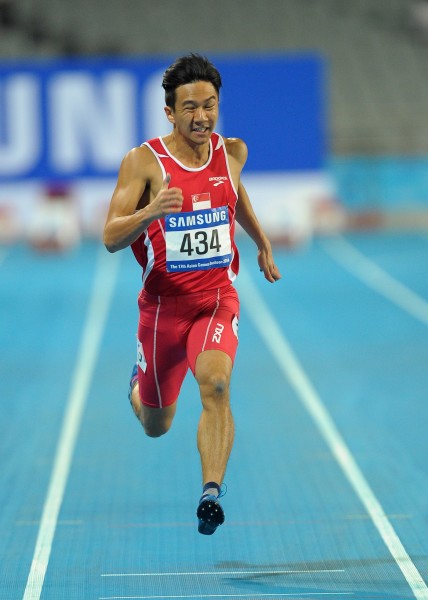
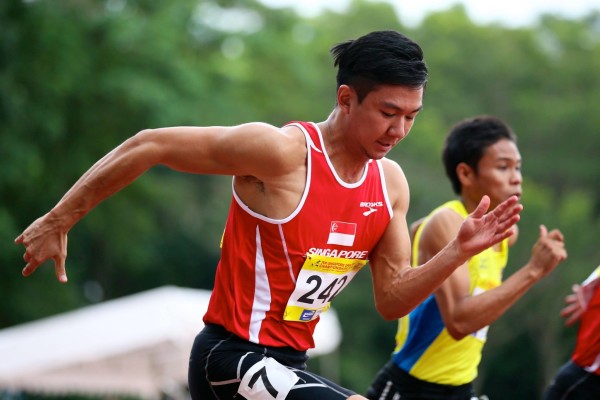
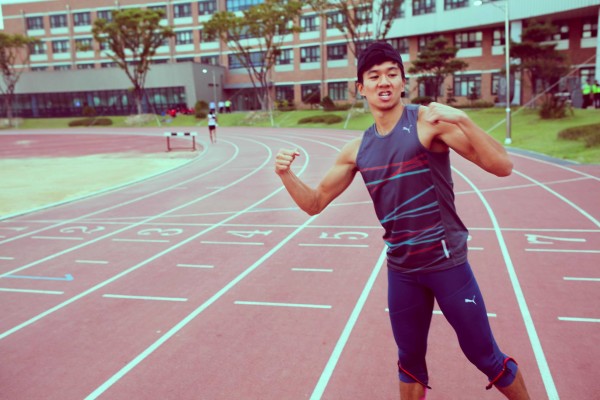
Leave a Comment